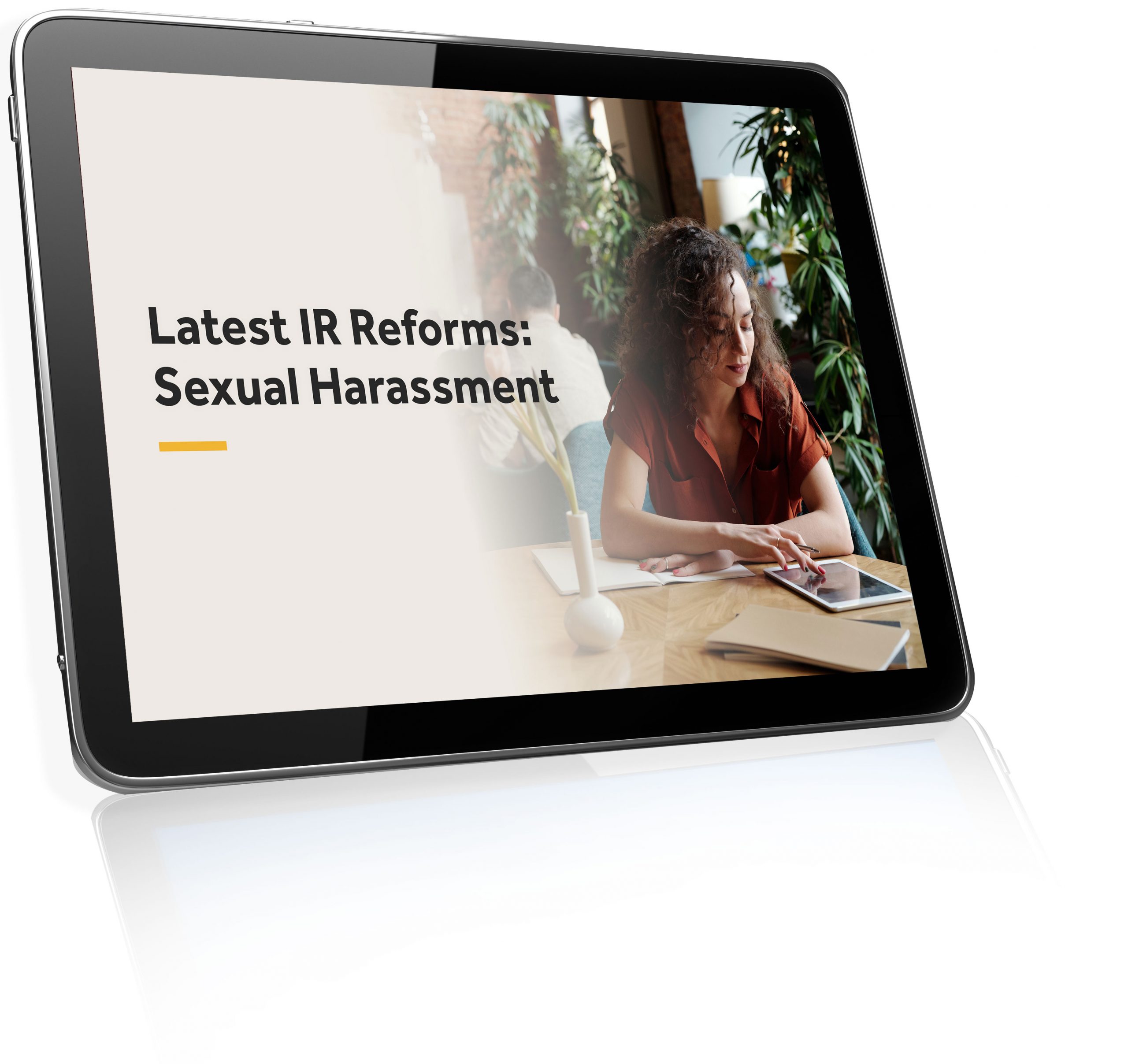
There has been an amendment to the Fair Work Act to protect workers, prospective workers, and persons conducting or undertaking a business by prohibiting sexual harassment, effective from 6 March 2023.
There have been significant changes in the areas of industrial relations as a result of the Fair Work Legislation Amendment (Secure Jobs, Better Pay) Act 2022. These changes impact Australian business owners, employers, and employees.
Background
In November 2022, the Australian Human Rights Commission conducted its Fifth national survey on workplace sexual harassment. This national survey found out that workplace sexual harassment remains a common prevalence with one in 3 workers having experienced sexual harassment in the last 5 years. Despite these tragically high numbers, the reporting of workplace sexual harassment continues to be low. Fewer than one in 5 people who have experienced workplace sexual harassment in the last 5 years have made a formal report or complaint.
Online messaging is the most common form of technology facilitated sexual harassment in the workplace. The behaviours experienced by people in the digital space further amplify the need for clear, concise behavioural guidelines for employees and employers.
The survey also indicates a glaring gap among available information and awareness in the workplace. Only half of workers surveyed said their organisation has provided employees with information on how to make a report or complaint about sexual harassment. Clearly, Australian workplaces have a long way to go when building proactive approaches in preventing and managing workplace sexual harassment.

Latest IR Reforms: Sexual Harassment
Download our Factsheet today to learn the latest IR Reforms regarding workplace sexual harassment.
Sexual harassment
Sexual harassment is defined to include behaviour that could reasonably be seen to result in a workplace being offensive, intimidating, or humiliating to a person by reason of their sex- even if the behaviour is not directed at a single person e.g., where employees engage in sexist conversation.
Building safe workplaces
Every workplace should be safe and free from sexual harassment. The amendments to Fair Work Act are a timely relief for businesses and employers who faced critique for the system being reactive rather than proactive. The previous model relied on individuals making complaints instead of employers assessing and evaluating the workplace and its safety.
We now have compelling data to implement steps and processes across workplaces and companies.The first step in ensuring a safe workplace is having a sexual harassment policy for your employees. This policy should be available in the employee handbook and made available to all current employees.
The latest amendment to the Fair Work Act is a timely step in ensuring employees have several avenues to pursue disputes in relation to sexual harassment.
What does it mean for employers?
Wondering what does it mean for employers? You must prepare your workplace for the upcoming changes by ensuring you have the appropriate policies and procedures in place.
This amendment is one of the many upcoming changes to the Fair Work Act in 2023. As an employer, you have to stay on top of the latest and upcoming changes to employment relations.
The timeline below lists some of the upcoming changes under the Fair Work Legislation Amendment (Secure Jobs, Better Pay) Act 2022. For more information on other key start dates and changes, call our 24/7 Advice Line today.
- Sexual harassment6 March 2023Prohibition of sexual harassment in the workplace.
- Pay equity6 March 2023Creation of 2 expert panels at the Fair Work Commission to focus on pay equity and the care and community sector.
- Parental Leave6 June 2023Changes to extending unpaid parental leave, including giving the Fair Work Commission the power to deal with disputes. More employees being able to access flexible working arrangements.
- Construction industry1 July 2023Creation of the National Construction Industry Forum.
- Fixed term contracts6 December 2023Limiting the length of fixed term contracts, with the Fair Work Commission having the powers to deal with disputes.
*Please note that this blog constitutes general information and is not supposed to replace professional and legal advice. If you need help with employment relations, please consult a professional.
